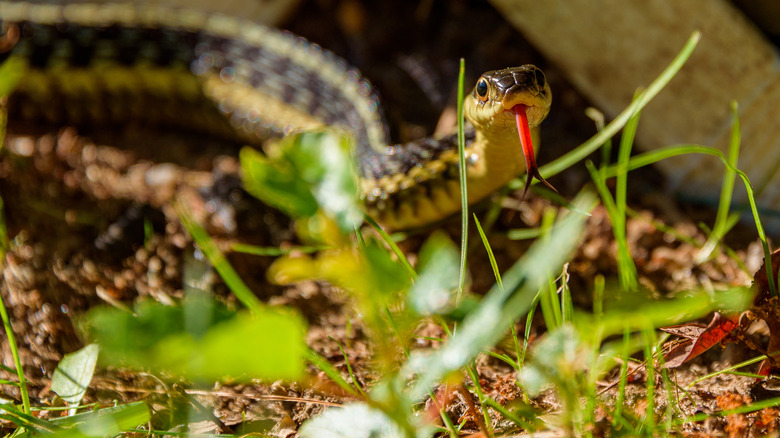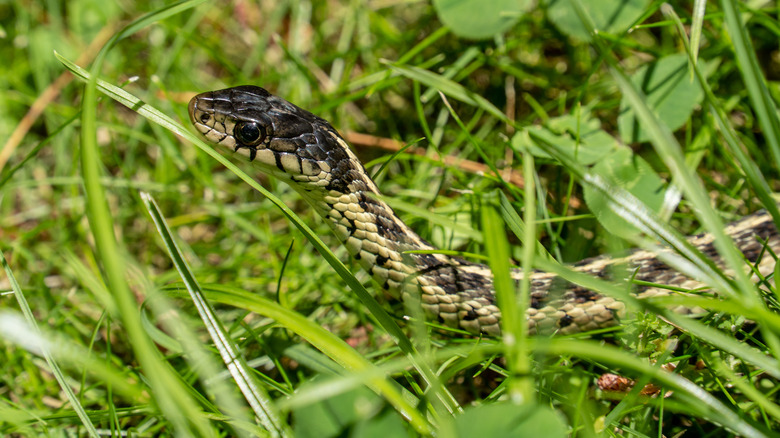What To Know Before Hiring A Pest Control Specialist For Snakes In The Yard
Snakes are all too common to find slithering about our yards, often startling us and sending us spiraling on how to quickly and efficiently remove them. You don't necessarily have to see the snake to know it's around, with skin shedding, snake holes, distinct odors, and tracks pointing to the reptile's presence. However, before you consider the best course of action to extract a snake from your property, it's incredibly important to identify the type of snake you're dealing with. Our homes will frequently see the coming and going of various kinds of snakes that aren't harmful and instead help us manage insect and rodent infestations. Garter snakes, gopher snakes, king snakes, rat snakes, and hognose snakes are pretty harmless to humans and don't cause much disturbance.
But, just as harmless snakes wander onto our property, many venomous species do as well, including cottonmouths, copperheads, rattlesnakes, and coral snakes. Before ever attempting to interact with a snake in your yard, you must identify whether or not it is poisonous by observing its physical attributes, such as head, body and eye shape, and heat pits. Whether or not a snake is venomous will shed light on if a professional needs to be called. If you aren't able to confidently identify the snake, it's best to err on the side of caution and call the pros. Before calling a specialist, assess what may be attracting the snakes, and how urgent the removal is based on where the snake or snakes are located.
Calling for professional snake removal
Before paying a specialist to remove a snake problem in your yard, consider if you can safely remove the reptile yourself. Whether the snake is poisonous, how many snakes are present, and if there's a humane removal approach are all factors to consider. They may strike when threatened and make us uncomfortable, but snakes are essential to the ecosystem, and some state and federal laws protect certain species. There are various humane snake traps, but it's the action of releasing that tends to be the most dangerous. You'll want to release the animal a far distance from your home and wear protective gear as it might attack upon being freed. If bitten by a snake, seek medical help and avoid common misconceptions such as sucking the venom out, using a tourniquet, or taking painkillers, per Johns Hopkins Medicine.
If you decide to call a specialist, first try to determine what exactly is attracting the snakes. By removing what's luring them, they may leave your yard independently. Commonly, a rodent issue is the main enticement, and even if you pay to have the snakes removed, more will return if rodent infestation persists. Hiring a specialist will vary in pricing depending on how many snakes, what species, and your location. But, one can anticipate paying $150 to $500. You'll also want to potentially have pest control search other areas of the yard and your home for any additional lingering snakes to ensure the problem is fully resolved.

